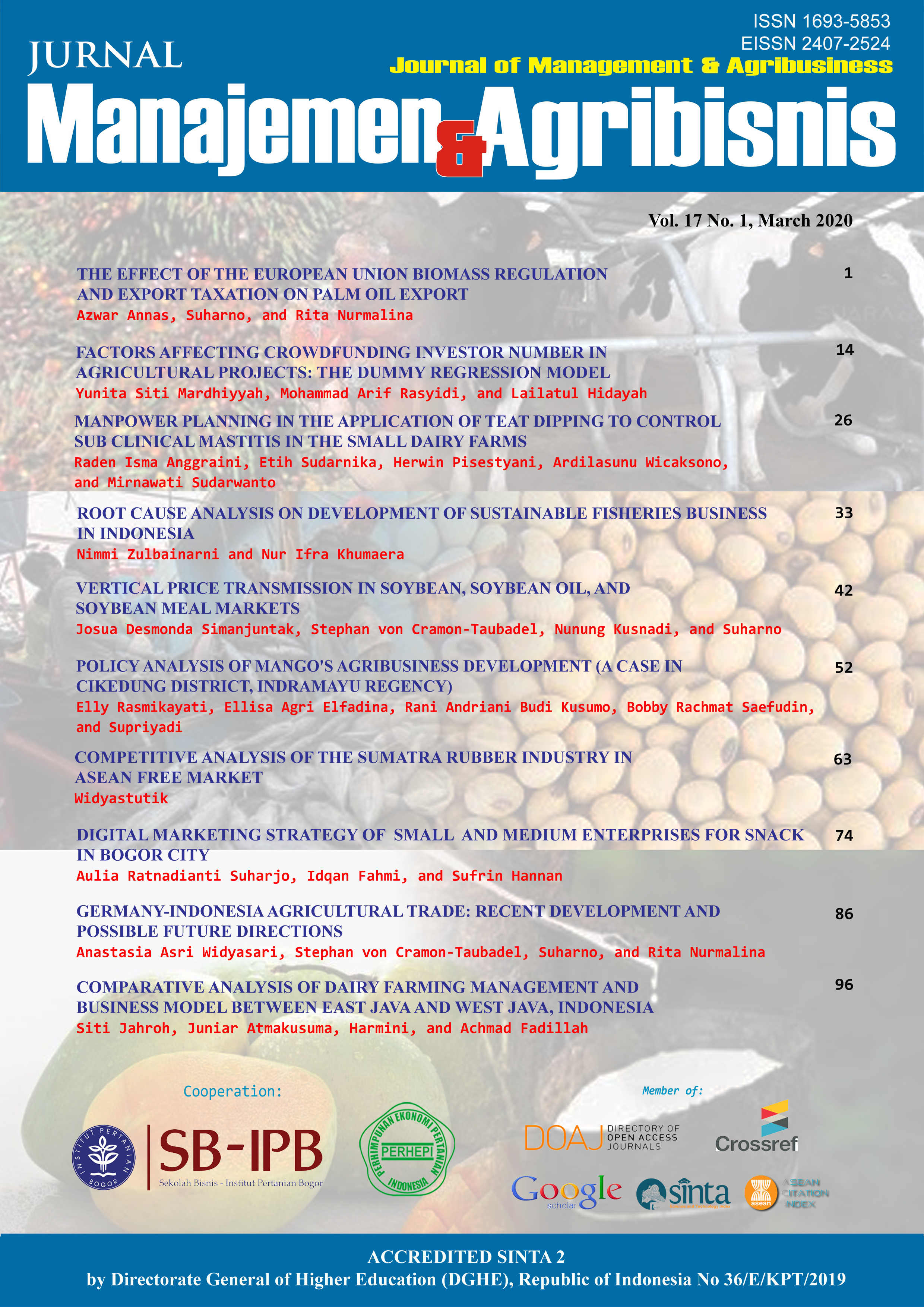Policy Analysis of Mango's Agribusiness Development (A Case in Cikedung District, Indramayu Regency)
Abstract
Mango is a popular commodity with local demand and exports are quite high each year. However, there is a fluctuation of land tenure area and the number of mango trees in Cikedung district, Indramayu regency that can affect the quantity of mango produced by farmers. This study aims to analyze the policies that have been carried out by the Ministry of Agriculture of the Republic of Indonesia related to the development of mango agribusiness and compile policy recommendations for developing mango agribusiness in Cikedung District, Indramayu Regency. The method used in this research is a survey method to 130 respondents. Data analyzed using the descriptive statistics analysis and Tinbergen model. The results showed that the type of government policies that has been accepted by some mango farmers in Cikedung district is very limited, the only grant of mango seed. The development of mango agribusiness policy that can be used to increase the land tenure area so that it impacts on increasing quantity of mango harvest, namely grant of agricultural production, land lease, seed grant, price subsidy of agricultural production facilities, and capital loans.
Keywords: policy analysis, agribusiness development, mango farming, land area, Tinbergen model
Authors
Authors who publish with this journal agree to the following terms:
- Authors retain copyright and grant the journal right of first publication with the work simultaneously licensed under a Creative Commons Attribution License that allows others to share the work with an acknowledgement of the work's authorship and initial publication in this journal.
- Authors are able to enter into separate, additional contractual arrangements for the non-exclusive distribution of the journal's published version of the work (e.g., post it to an institutional repository or publish it in a book), with an acknowledgement of its initial publication in this journal.
- Authors are permitted and encouraged to post their work online (e.g., in institutional repositories or on their website) prior to and during the submission process, as it can lead to productive exchanges, as well as earlier and greater citation of published work (See The Effect of Open Access).

